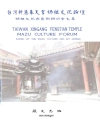In the first part of The Divine in Husserl and Other Explorations a description is provided of Husserl’s method in order to explain how he deals with the question of God from a philosophical perspective. The results from this investigation are compared with the main contributions of the philosophers of the past.
The second part focuses on the theme of religion as developed by Husserl in order to grasp the meaning of religious lived-experiences. Through an archeological excavation Husserl teaches us how to go to the bottom of the sacred and the divine in order to pinpoint their features and to comprehend their religious configurations in history.
In the third part one can find the application of husserlian hyletics and noetics to the field of the archaic sacred and of the different religious experiences. Some particular themes are treated such as ecstasy, contemplation, incarnation, and the relationship between the human being and the God from a philosophical and a religious point of view.
表中的内容
Thinking God.- Phenomenology as Philosophy Sui Generis.- Husserl’S Question Of God As A Philosophical Question.- Believing In God.- The Husserlian Approach to Religion.- Religion As The Object Of Phenomenological Analysis.- Some Explorations In The Phenomenology Of Religion.- Examples Of Archeological Excavation.- Ecstasy and Contemplation in Various Religious Experiences.- God as ‘Third’ or as ‘You’?: Comparing Philosophy and Religion.












